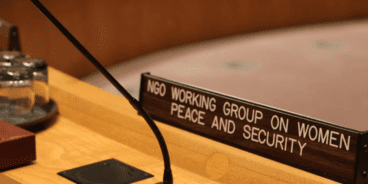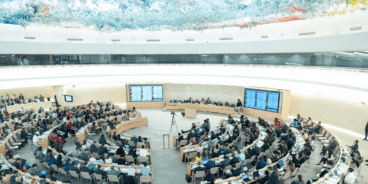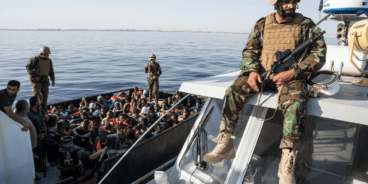
Libya: Time for Decision
International condemnation and action against attacks on civilians in Libya by Muammar Gaddafi’s regime have epitomized the spirit of the landmark 2005 agreement on the responsibility to protect. This condemnation and action have made tangibly clear that sovereignty is not absolute when it comes to egregious human rights violations. The actions undertaken by Gaddafi and his clique–in resorting to lethal and disproportionate force, carrying out arbitrary arrests and forced disappearances, killing civilians, kidnapping patients from hospitals—are not only in patent breach of the principle of the responsibility to protect; they are a flagrant manifestation of why it is needed.
On 26 February 2011 the Security Council reflected the consensus around the responsibility to protect by unanimously adopting resolution 1970–a unique affirmation of the principle that the international community can no longer be a bystander to the commission of the atrocities of genocide, war crimes, ethnic cleansing and crimes against humanity.
The unprecedented agreement among Security Council members allowed swift UN action on a number of fronts. The package of measures authorized by resolution 1970 has demonstrated that the international community can indeed come together against a regime that has shown no remorse in victimizing its own population. The imposition by the Security Council of an arms embargo, asset freezes, travel bans, and referral of the case to the International Criminal Court show that collective action against a violator of the responsibility to protect can be effectively implemented under the authority of the United Nations.
Yet the situation today is one of dilemmas for the international community. The package of measures was intended to isolate Gaddafi, pressure his regime and encourage further defection. Notwithstanding their breadth, however, these measures have proven painfully slow and clearly insufficient in the face of a ruler bent on committing mass atrocities.
In this context the League of Arab States has stepped in, having already suspended Libya as a member on 22 February 2011. The League has now heightened its condemnation of the Gaddafi regime by reminding the Security Council that large-scale violence against civilians falls squarely within its remit. In an unprecedented move the League has formally called on the Council to shoulder this responsibility and to impose a no-fly zone over Libya, to protect civilians from air attacks by Gaddafi’s forces.
The decision of the League of Arab States to call on the Security Council to authorize a no-fly zone over Libya speaks directly to the responsibility entrusted to the Council under the 2005 commitment. Behind the firm voice of the Arab League and its support for more forceful action lies the conviction that the Libyan regime should face the consequences for its brutal actions.
The efforts to stop atrocities and to stop Libya from falling off the precipice of civil war are not without risks. For differentreasons the world’s powers have shown some reluctance, some apprehension of possible accusations about their motives. Arab support for a no-fly zone has very significantly defused such accusations. A no-fly zone is also justified by the ability of the Gaddafi regime to deploy air power as it murderously reasserts control.
The international condemnation of the atrocious conduct of the Gaddafi regime has been loud, clear and heartening. The world now looks to the Security Council as the institution entrusted with the responsibility to stop atrocities. The actions the Council can authorize may not be panaceas; inaction, however, is not justified. The Security Council must now provide the authorization of the no-fly zone without which no other decisive action against the Gaddafi regime appears likely.
The Security Council has spoken for the principle of the responsibility to protect; it has also ruled out its silence now.
Related Content


Atrocity Prevention and the UN Human Rights Council’s 52nd Session
